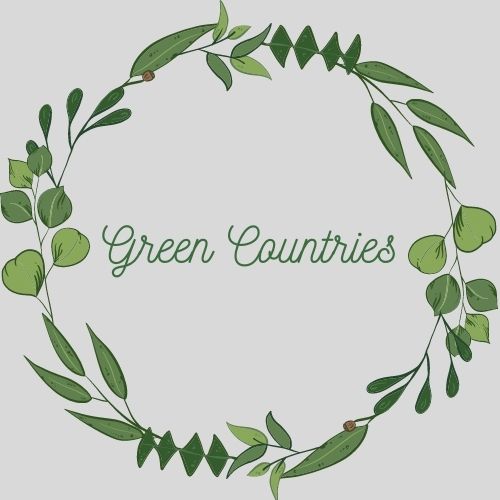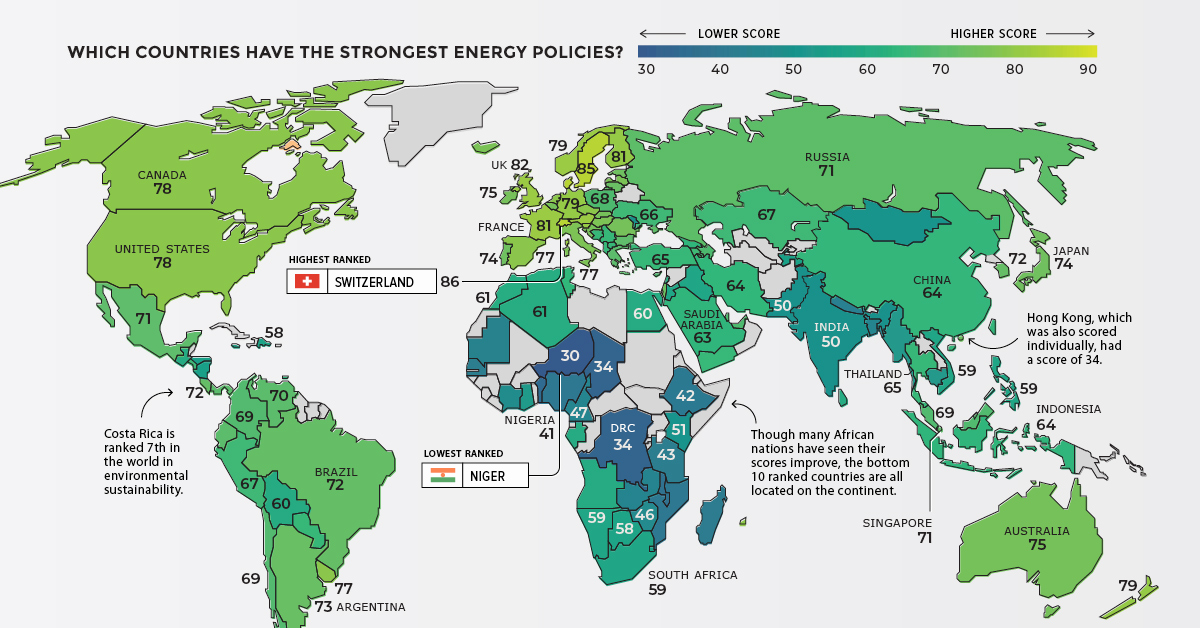
The Greenest Countries
The climate crisis is a worldwide problem and every country has different solutions to it. Overall, there are several countries that are doing amazing things to work towards a more sustainable world on their own and have many different programs to reverse climate change. A good way to measure these changes is to follow a country’s EPI or Environmental Performance Index. The EPI is a third-party group that scores countries on their sustainability results, not just the goals. In addition, many countries have goals of being carbon-neutral by a certain date or a renewable energy goal by a certain date, which encourages companies to follow suit and follow the country’s goals.
Denmark is one of the most impressive countries when it comes to sustainability. They have announced their goal of running on 100% renewable energies by 2050. The large island off of Denmark named Sanso is already running on 100% renewable energy including solar, wind, and biomass energy. The EPI score of Denmark was number one in the country in sustainable efforts. Denmark is also home to Copenhagen, which is one of the cleanest cities in the world, much to do with their cycling habits and their focus on waste management.
Costa Rica is one of the most sustainable countries in the world. The country runs on 100% renewable energy, like solar, geothermal, wind, and hydroelectric. This has been a goal that the country has been working towards, and has achieved within the last two years. In addition, Costa Rica had a goal of being carbon neutral by 2021, even without the pandemic, this has been a difficult goal. However, that goal has been adjusted and reworked since the country has not been able to reach carbon neutrality yet. Now the country aligns with many other countries in the goal of being carbon-neutral by 2050.
Switzerland is another major leader in the world of global sustainability. Switzerland is one of the few countries that does not have a landfill. In 2013, the country produced 5.7 tonnes of urban waste, half was recycled and the other have was incinerated to produce energy with minimal air pollution. Switzerland also has an industrial-scale carbon-capture plant that removes about 800 tonnes of carbon dioxide. The country has ambitious, but important goals for the future such as preserving water, 100% renewable energy use, restoring oceans by 50%, and becoming carbon neutral all by 2050.
Another simple goal that a lot of countries have turned to is food and transportation goals. France has started placing requirements on supermarkets to redistribute leftover food to charities. New Zealand has the most sustainable farming system in the world. Austria is one of the top countries in producing organic food and over 20% of Austrian farmland follows the environmental standards of organic farming. Many countries around the world, such as France, New Zealand, and Japan have all pushed goals for more public transportation where gas cars are discouraged.

Sustainable development and environmental goals are an important part of the world’s future. In order to see the goal results, all countries have to work together, and many have a plan in place to see results. In general, many countries are working towards carbon neutrality and 100% renewable energy by 2050. Some countries are trying to see the benefits of reaching these goals and how to achieve them in time. Overall, sustainability can be seen in different places around the world with laws and regulations that encourage healthy growth for the future.
CleanRiver. “6 Countries Leading the Way in Sustainability,” March 4, 2020. https://cleanriver.com/blogleading-countries-in-sustainability/.
The Sustainable Living Guide. “10 Most Sustainable Countries in the World,” September 19, 2021. https://thesustainablelivingguide.com/most-sustainable-countries/.
Berry, India. “Top 10 Greenest Countries.” Sustainability, October 21, 2021. https://sustainabilitymag.com/top10/top-10-greenest-countries-2.
Le News. “Swiss Fact: Switzerland Sends No Urban Waste to Landfill,” December 23, 2016. https://lenews.ch/2016/12/23/swiss-fact-switzerland-sends-no-urban-waste-to-landfill/.
